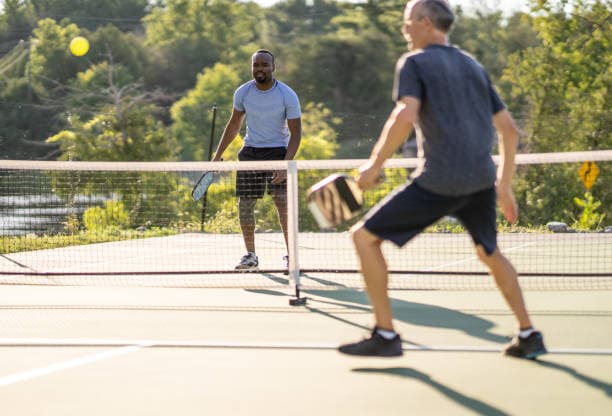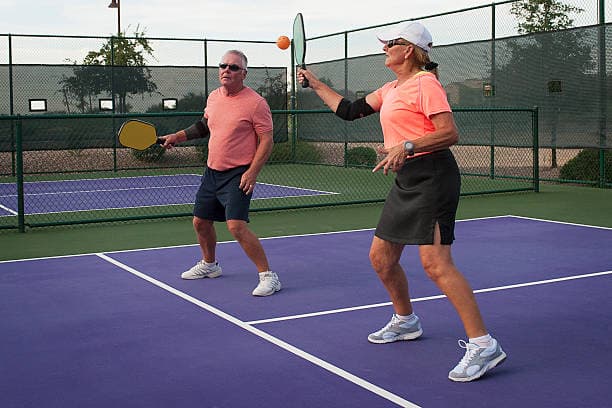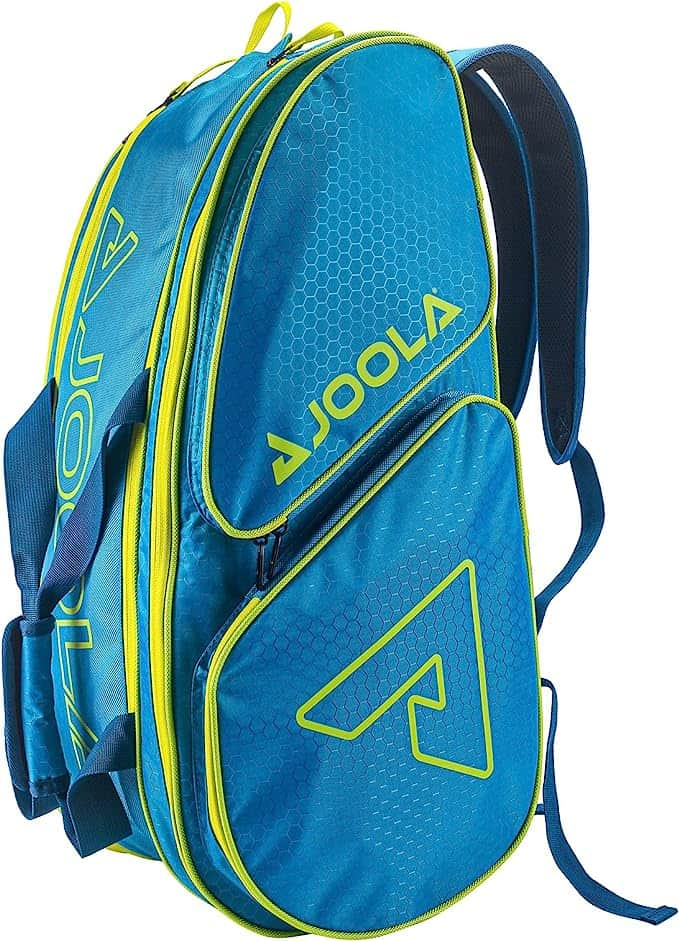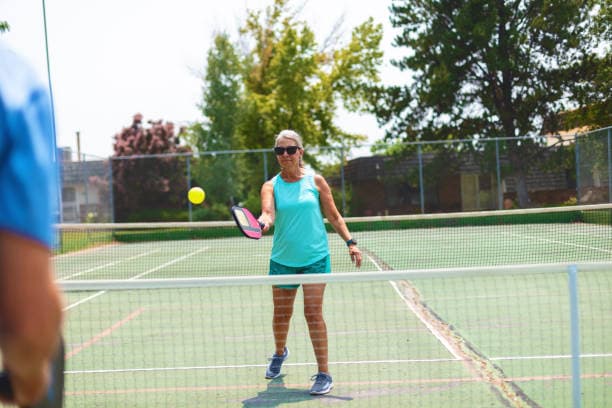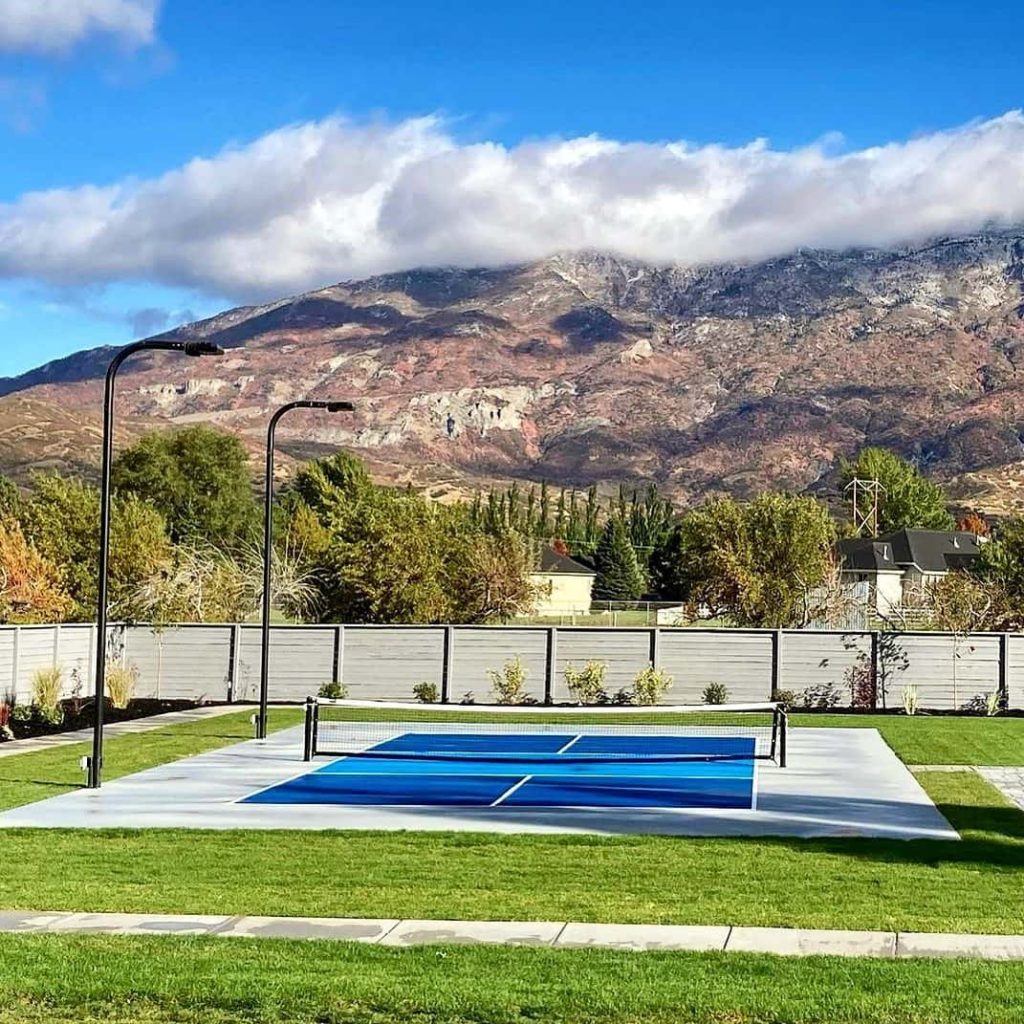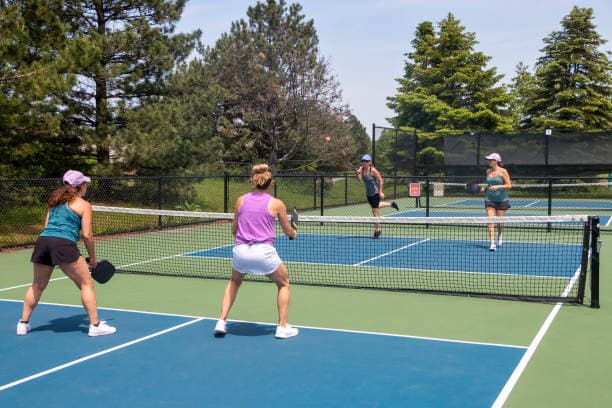Understanding What Makes a Great Pickleball Player
To truly excel at pickleball one must grasp the key elements that contribute to greatness within the sport. By understanding these factors deeply, aspiring players can focus their efforts on developing specific skills and strategies necessary for success on the court. Whether you aspire to compete at an elite level or simply want to enhance your recreational play, unraveling the secrets behind what makes a great pickleball player will undoubtedly guide you towards improvement and fulfillment in this captivating sport.
Physical Attributes and Skills
Hand-Eye Coordination and Reflexes
In the world of pickleball hand-eye coordination and quick reflexes are paramount. Having excellent hand-eye coordination allows players to track the ball’s movement accurately, enabling precise shot placement and timely reactions. A great pickleball player possesses the ability to anticipate their opponent’s shots and respond swiftly with well-executed returns.
Quick reflexes not only enable them to react promptly but also give them an edge in defensive plays, allowing for effective counterattacks. It is through these lightning-fast responses that players can maintain control over rallies and keep their opponents on their toes.
To improve hand-eye coordination and reflexes practice drills play a crucial role. One effective drill involves using a partner or a wall to hit balls at varying speeds and angles, forcing players to react quickly while maintaining accuracy.
Additionally, practicing with smaller paddles or even ping pong paddles can help improve precision as it requires more precise contact with the ball. Consistent training with such drills will gradually enhance hand-eye coordination and reflexes, enabling players to excel in fast-paced pickleball matches.
Agility and Footwork
The significance of agility cannot be overstated when it comes to excelling in pickleball. The ability to move swiftly across the court and keep balls in play allows players to reach difficult shots while maintaining balance and control. Agile footwork helps in positioning oneself optimally for both offensive strikes and defensive maneuvers.
To develop agility on the pickleball court specific exercises can be incorporated into training routines. One effective exercise is ladder drills that involve moving rapidly in different patterns through a series of raised rungs on the ground. Such exercises facilitate quick movements, sharp turns, lateral shuffling, and explosive acceleration – all essential elements of agile footwork required in this dynamic sport.
Strength and Endurance
Physical fitness is a crucial aspect of performance in long pickleball matches. Great players possess the strength and endurance to sustain their level of play throughout extended rallies and multi-set games. Having sufficient strength not only allows players to generate power in their shots, but to maintain their highest performance from the beginning through the end of the match without the level dropping.
Endurance ensures they remain focused, alert, and energetic even during prolonged matches. Building strength and stamina for pickleball can be accomplished through various training methods.
Regular cardiovascular exercises such as running, cycling, and swimming enhance overall endurance. Strength training exercises like weightlifting or resistance band workouts contribute to stronger muscles needed for powerful shots and sustained movement on the court.
Incorporating circuit training that combines cardiovascular activities with strength-building exercises can provide a comprehensive workout regimen tailored specifically for pickleball players. By focusing on improving these physical attributes and skills through targeted drills, exercises, and training programs, aspiring pickleball players can enhance their overall gameplay and strive towards becoming exceptional athletes in this fast-paced sport.
Technical Proficiency
Understanding the Rules and Strategies
A great pickleball player possesses a deep understanding of the game’s rules and strategies, which are fundamental to their success on the court. Familiarity with the basic rules and court dimensions is essential for effective gameplay.
Understanding how points are earned, when to change sides, and what constitutes a fault enables players to make informed decisions during matches. Grasping the strategic aspects of pickleball is crucial.
This includes knowledge of positioning oneself on the court strategically to maximize coverage and minimize vulnerabilities. Players must comprehend shot selection based on factors such as opponents’ positions and their own strengths and weaknesses.
Mastering Different Shots
Pickleball offers an array of shots that seasoned players must master in order to excel in various situations. Essential shots such as dinks, volleys, smashes, lobs, and drop shots require technical finesse. A dink is a soft shot that requires precise control over touch and placement near the net.
Volleys involve hitting the ball before it bounces on your side of the court while maintaining good positioning. Smashes demand explosive power as players strike overhead shots with force towards opponents’ weak spots. Lobs are high-arching shots that sail over opponents’ heads, often used defensively or as offensive tactics when positioned at an advantageous spot near baseline. Each shot holds its own significance in different scenarios during matches.
Tips for Perfecting Each Shot Through Drills
To master these essential pickleball shots effectively practice drills play a vital role in refining technique and enhancing consistency on-court performance. For dinks, focus on softening your grip pressure while practicing controlled paddle movements close to the net targets with varying speeds and angles to develop accurate touch under pressure situations confidently.
Volley drills should involve repetitive footwork and paddle positioning exercises to improve timing and hand-eye coordination. Smashes require working on explosive leg power and upper body strength through specific conditioning exercises, coupled with practicing overhead shots to develop accuracy and control.
Lobs necessitate practicing high-arched shots with precision, aiming for targeted zones on the court repeatedly. Incorporating these practice drills into training sessions can aid in perfecting each shot’s execution while building muscle memory for consistent results in actual matches.
Mental Toughness
In the fast-paced and highly competitive world of pickleball, mental toughness plays a crucial role in determining the success of a player. It’s the ability to stay composed, focused, and resilient in the face of challenges that sets apart great players from good ones. Mental toughness encompasses various aspects such as focus and concentration as well as resilience and adaptability.
Focus and Concentration
During intense rallies in pickleball maintaining unwavering focus can be the difference between making a winning shot or committing an unforced error. A great pickleball player understands the importance of zoning in on every single point, blocking out distractions and external factors that may interfere with concentration.
They possess exceptional mental discipline to stay fully engaged in each rally, anticipating their opponent’s moves while executing precise shots. To improve concentration on the court players can practice mindfulness techniques such as deep breathing exercises before matches or during breaks.
Employing visualization strategies can assist in mentally rehearsing successful shots and anticipating opponents’ moves. These techniques help players channel their energy into staying present during pivotal moments on the court.
Resilience and Adaptability
Pickleball is a dynamic sport where momentum shifts constantly throughout a match. Great players understand that setbacks are inevitable but possess remarkable resilience to bounce back quickly from challenging situations.
They embrace adversity as an opportunity for growth rather than succumbing to frustration or self-doubt. In high-pressure situations maintaining composure is imperative for optimal performance. Great pickleball players develop coping mechanisms to handle stress effectively by applying techniques such as positive self-talk or focusing on their breath to regain control over emotions.
Adaptability is another essential aspect of mental toughness in pickleball. The ability to adjust one’s game based on an opponent’s playing style or changing circumstances is a hallmark of a great player. They analyze their opponents’ strengths and weaknesses, modify their strategy accordingly, and make necessary tactical adjustments on the fly.
Mental toughness is a vital attribute for any pickleball player aspiring to greatness. By honing focus and concentration skills while maintaining resilience and adaptability in pressure situations, players can elevate their performance to new levels and achieve success on the court.
Strategies for Improvement
Consistent Practice Routine
To truly excel in pickleball it’s imperative to establish a consistent practice routine. Regular practice sessions allow players to refine their skills, enhance muscle memory, and develop greater proficiency on the court.
By dedicating specific time slots each week for focused practice, athletes can create a disciplined approach towards improvement. Consistency breeds familiarity with the game’s intricacies and enables players to fine-tune their techniques.
The Significance of Regular Practice Sessions
Regular practice sessions serve as the cornerstone of improvement in any sport, and pickleball is no exception. It’s during these deliberate training periods that players can work on honing their strengths, addressing weaknesses, and implementing new strategies.
The repetition of drills and exercises allows for muscle memory development and improved coordination. Consistent practice enhances decision-making abilities and helps players become more instinctive on the court.
Designing an Effective Practice Plan
An effective practice plan should encompass a variety of aspects that cater to individual needs while targeting areas requiring improvement. It should include a combination of drills focusing on agility, shot accuracy, footwork, and game-like scenarios.
Breaking down each skill into smaller components facilitates incremental growth over time. Incorporating situational training that simulates match conditions helps players apply their techniques in practical scenarios.
Seeking Coaching or Mentorship
One cannot underestimate the value of seeking coaching or mentorship when aiming to become an exceptional pickleball player. An experienced coach or mentor provides valuable guidance by assessing technique flaws, suggesting personalized improvements tailored to individual strengths and weaknesses, and imparting strategic knowledge gained through experience. They offer expert analysis of gameplay tactics that can elevate one’s performance significantly.
Conclusion
Becoming a great pickleball player requires dedication to both physical and mental aspects of the game. By adopting these strategies for improvement, any aspiring pickleball player has the potential to reach new heights of success on the court. Embrace the journey with enthusiasm and determination, knowing that greatness in pickleball is within your grasp!

